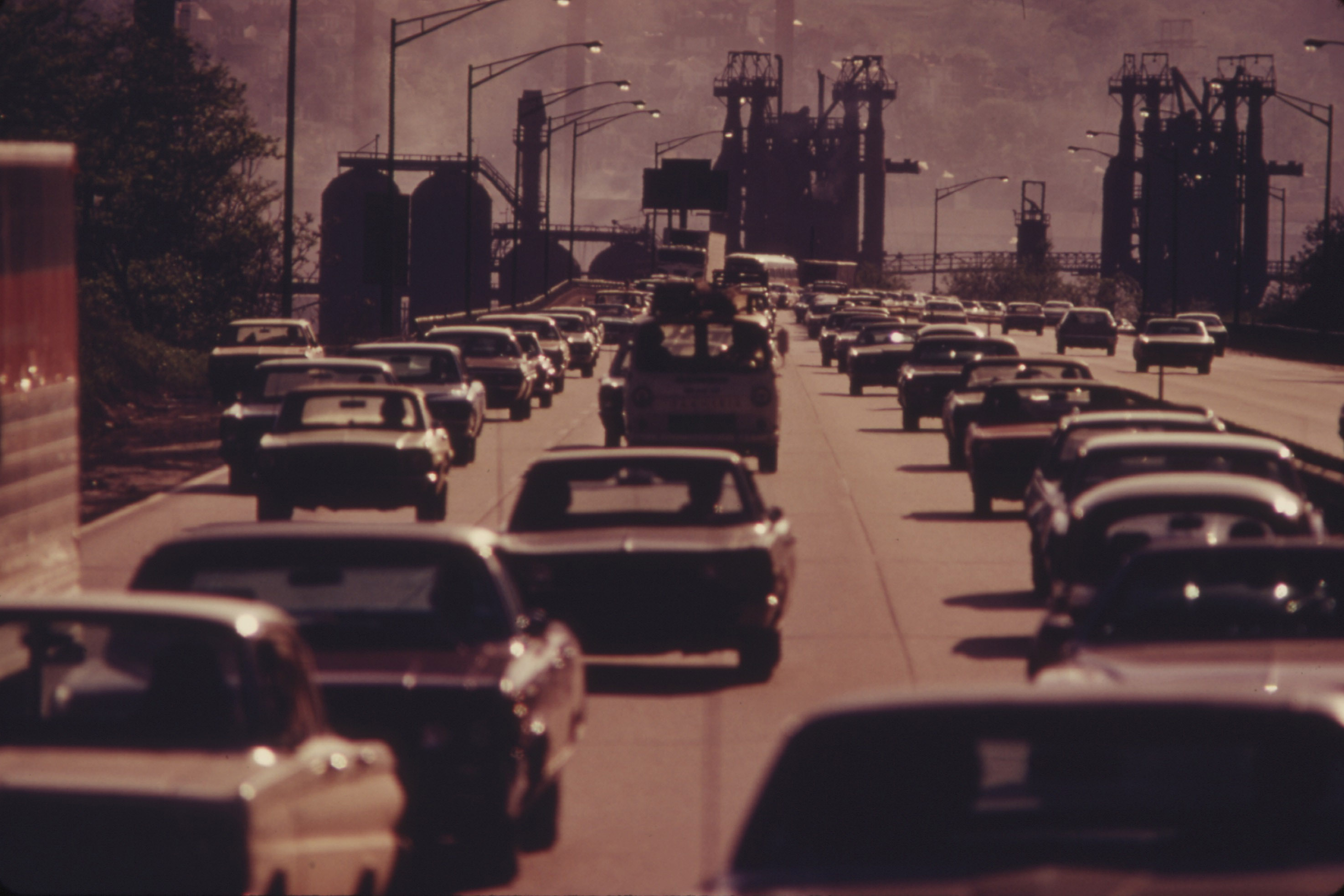NOTE: This story was originally published on May 1, 2015.
Cleaning up Pittsburgh’s skies was a process that took generations. But one key cog in the push to clear the air in the city once called ‘Hell with the lid off’ was a group of housewives, doctors and engineers with a knack for guerrilla marketing.
The Group Against Smog and Pollution (GASP) formed in 1969 at a time when the environment was becoming a mainstream concern in many of America’s cities.
“We represent the little man—we want (to help) anybody with lungs,” GASP’s first president, Michelle Madoff, said in a 1970 interview. “I don’t know where you can buy new lungs.”
LISTEN: “Clean Air, Brought to You by GASP”
Jim Longhurst, a professor of environmental history at the University of Wisconsin-La Crosse, and author of Citizen Environmentalists, a case study of the group, says air quality in Pittsburgh in the late ‘60s and early ‘70s was an issue ripe for citizen activism.
“In Pittsburgh, everyone knew and understood about environmental impact because you could literally taste it,” he says. “You could smell the air, you could see when a coking operation was underway.”
In an interview Longhurst conducted with Madoff in 2007, Madoff explained how the group formed after an initial meeting in her home.
“There were about 30 people. And we needed a name. And somebody said there’s a group called Group Against Smelters’ Pollution. And they said, ‘why don’t we adopt it.’ We’ll call ourselves Group Against Smog and Pollution. And that’s what they did. And I became president.”
Longhurst says GASP was one of many anti-pollution groups that formed in the late ’60s and ’70s that capitalized on short, catchy, onomatopoeic acronyms.
“There’s COPE, CARP, GASP, CHOKE, CAP, CAN. A lot of them start with a ‘C’ because they start with the word ‘citizen.’”
WATCH: GASP’s ‘Dirty Gertie’ TV ad from the 1970s
GASP organizers had a knack for marketing. Case in point: This “Dirty Gertie” cartoon that ran on local television.
The group had a knack for marketing—like the time it sold cans of clean air at a video arcade. It immediately went viral on the local airwaves.
“The [news]papers carried it because it’s a visual and it’s a news story,” Madoff told Longhust in 2007. “I turned on my car radio, and they said commissioner (William) Hunt called Michelle a paranoid asthmatic with a fetish for air. I still have [the story] in my wallet.”
Michelle Madoff would go on to be a city councilwoman in Pittsburgh. She passed away in 2013 at age 85. But GASP lives on—in part, Longhurst says, because of its confrontational stance on environmental issues.
“[Before GASP], there were agreements about controlling air pollution in Pittsburgh, but those were generally gentlemen’s agreements, arrived at behind closed doors. GASP pushed its way into those meetings and those debates.”


